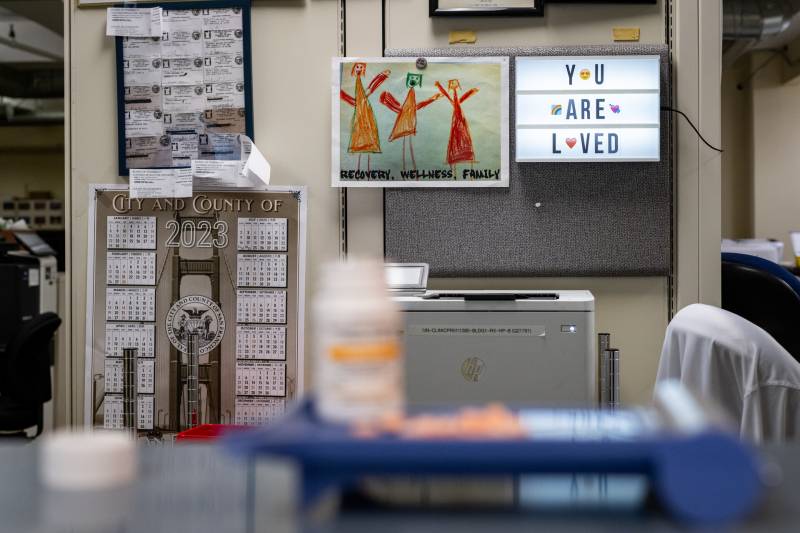Colfax and other public health officials also shared updates on a new pilot program meant to improve medication access for unhoused people seeking addiction treatment overnight.
As part of the new program, members of the Night Navigation Team make contact with unhoused people between 8 p.m. and midnight and set up telehealth consultations with on-call doctors.
Those doctors can then write prescriptions for things like buprenorphine — a pain medication that helps reduce withdrawal symptoms — to be picked up at a 24-hour pharmacy or the next day.
“Since 2020, DPH has been rapidly expanding our system to make drug treatment more accessible than ever and to serve more people in those treatment programs,” Colfax said. “We know from our outreach program that there is a demand for medications to treat fentanyl addiction at night.”
If rooms are available, residents who accept treatment are also provided with a place to stay while they start their recovery.
“Under this pilot, many of the individuals who have committed to starting medication for their fentanyl-use disorder have been sheltered at either the Adante Hotel or another available site in the community to start their medicine,” Chief Medical Officer Dr. Joanna Eveland said. “We have been using rooms that were previously reserved for quarantine emergencies but not currently needed for those, thankfully.”
Once placed in a room, Eveland said residents are connected with a case manager to begin planning for their exit after a week. Those residents also have access to various services, including transportation to pick up prescriptions and help to enroll in treatment programs or public insurance.
The pilot program began in March and recorded 173 telehealth consultations in that time, according to Eveland. Of those, 134 were prescribed buprenorphine and 33% of people picked up those medications.

